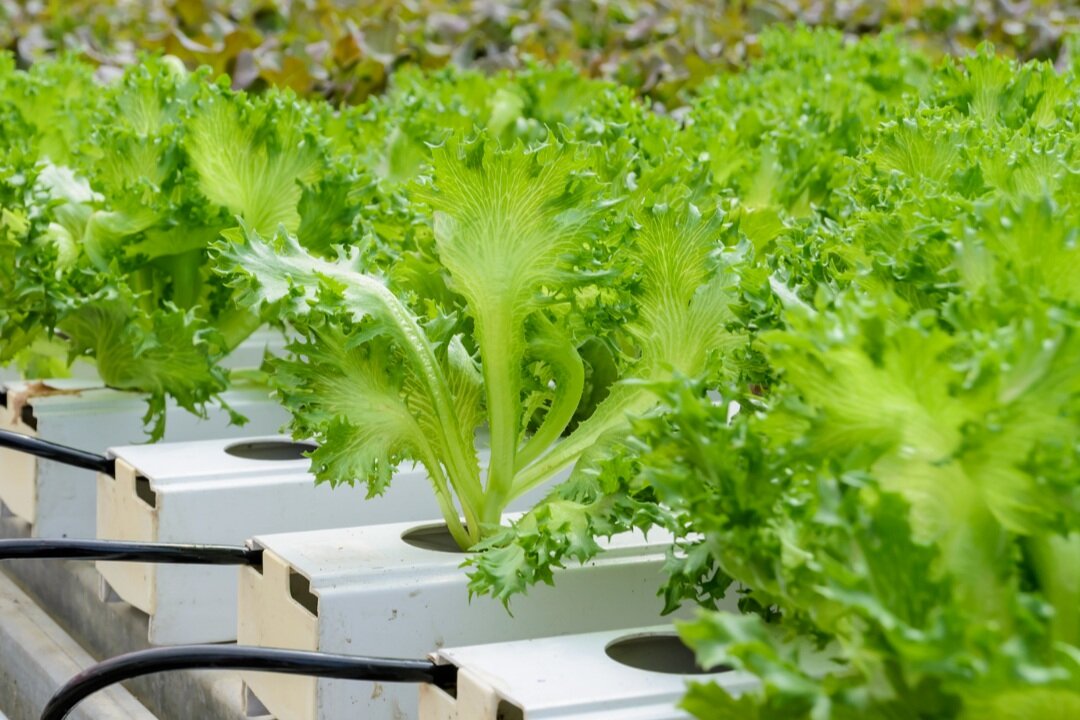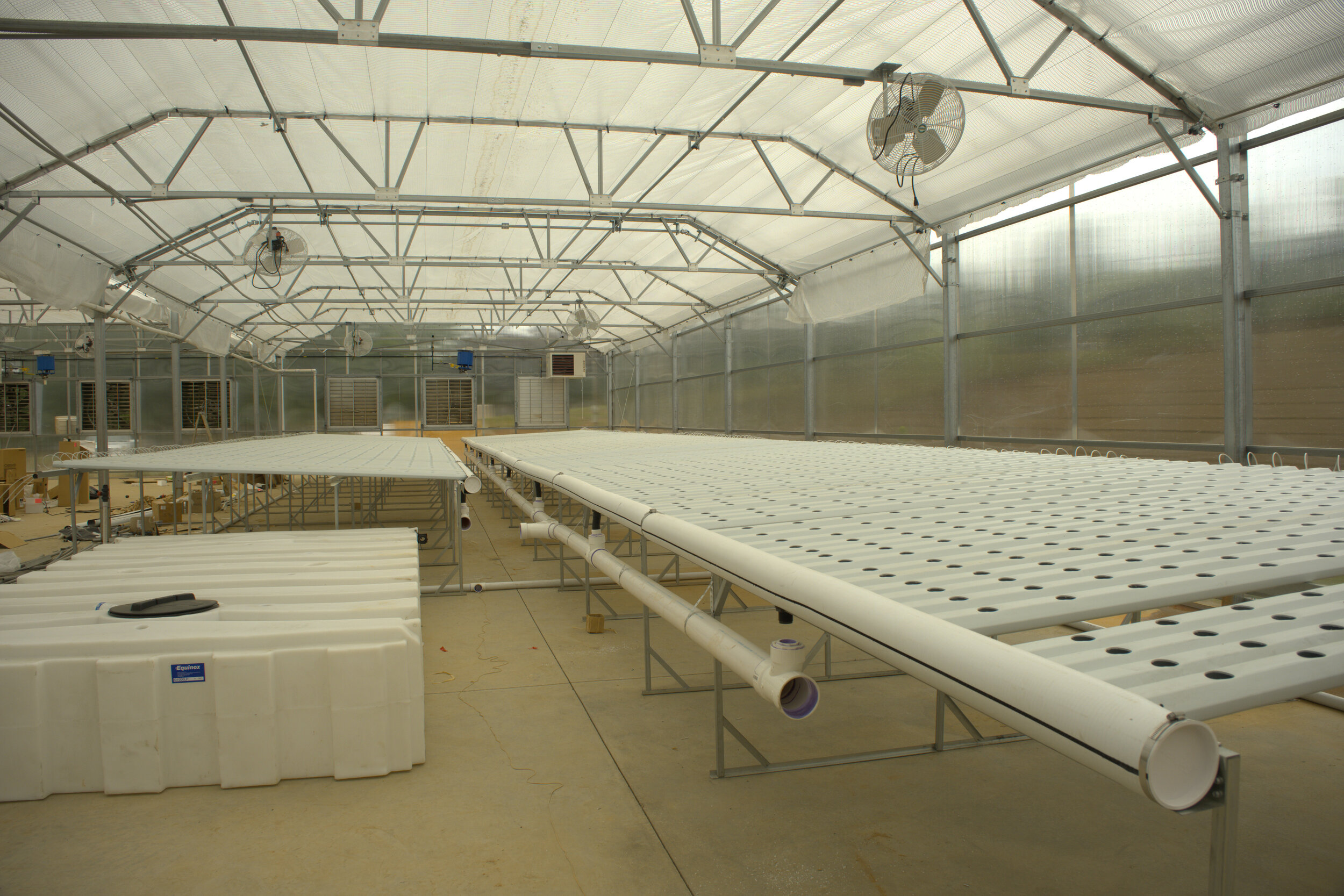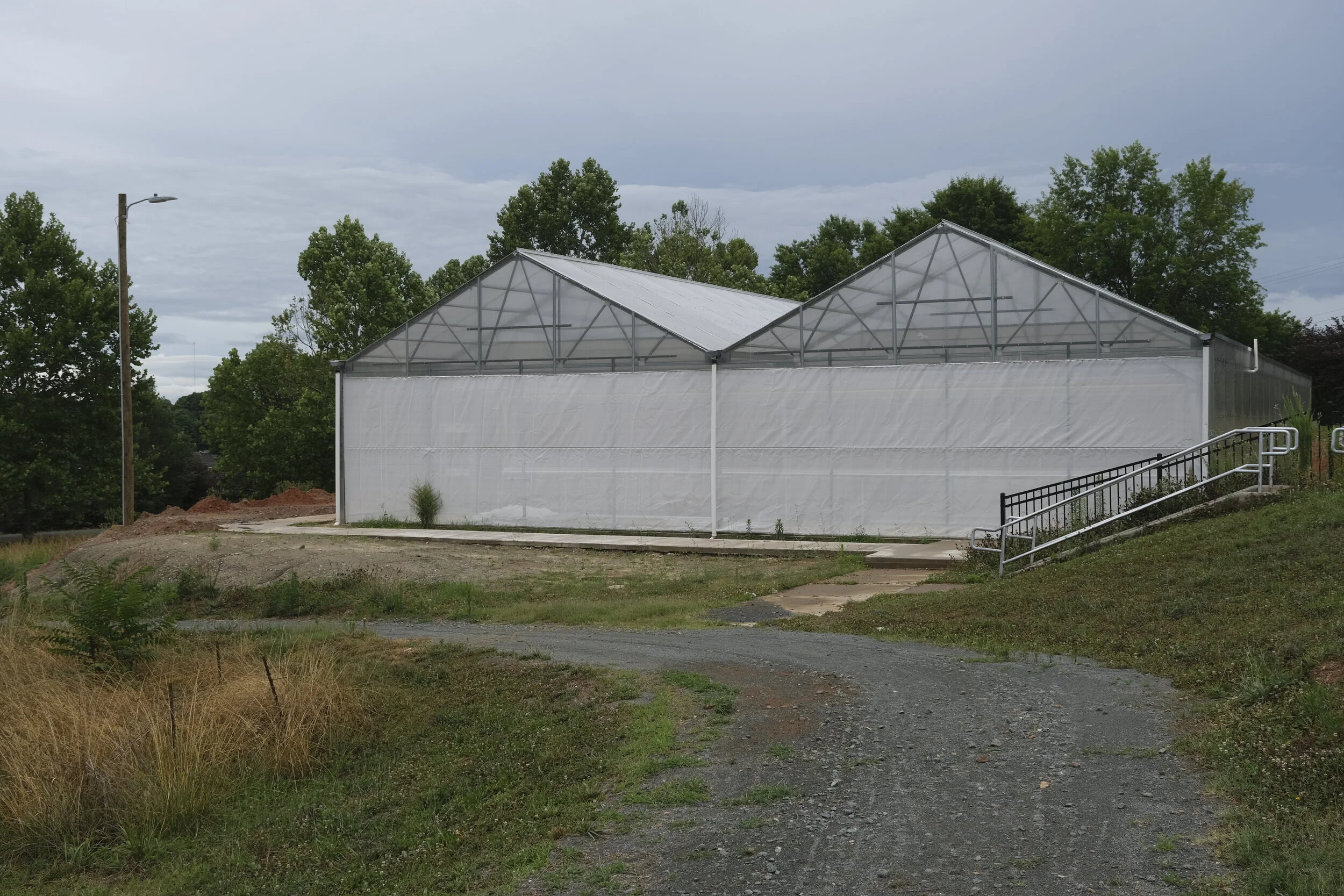Apr 5, 2022
Supermarket Redlining Has Hurt This Community’s Access To Fresh Produce; Here’s What One Entrepreneur Is Doing About It

Editor’s note: The following information is derived from an interview Agritecture conducted with Michael L. Suggs, President of the Goler Community Development Corporation. This post is part of a series of urban agriculture-related interviews conducted by Agritecture’s Director of Business Development, Jeffrey Landau, on his travels to farms around the United States. Follow Jeffrey’s adventure here.
The Nation’s 10th Hungriest State
According to the U.S. Department of Agriculture, 11.1% of American households experienced hunger in 2019. North Carolina makes up 1.6 million of these households that don’t have enough food on their plates.

Goler CDC’s Kimberly Park Greenhouse in Winston-Salem, North Carolina; image sourced from Jeffrey Landau
Alongside being the 10th hungriest state in the nation, North Carolina’s Committee on Food Desert Zones found there to be 349 food deserts in 80 North Carolina counties. The city of Winston-Salem is faced with high levels of scarcity.
As a mixed-income multicultural community, Winston-Salem in Forsyth County, NC ranked seventh on a national list of metropolitan statistical areas with the highest rate of food hardship, according to the 2018 Food Research & Action Center report.
If you take a closer look at these statistics, you’ll find that 49.7% of the Black residents in Winston-Salem have low or no access to healthy food. Additionally, the 21 food deserts in this city are primarily concentrated on the east side, where redlining and institutional racism have long been a problem.
“Studies have indicated there are often biases against opening stores in communities of low-income and minoritized individuals based on a perception of lower profit margins. This has amounted to structural racism and what some have called ‘supermarket redlining. ”
The Real Estate Developer Taking On This Challenge

Goler CDC’s Kimberly Park Greenhouse in Winston-Salem, North Carolina; image sourced from Jeffrey Landau
Established in 1998, the Goler Community Development Corporation (GCDC) has been leading several urban real estate projects in the growing Winston Salem, North Carolina area, in the hopes of supporting and revitalizing this multicultural community. They’ve been keeping a close eye on the surrounding impoverished neighborhoods that have experienced generational disinvestment and a lack of economic activity.
This 501(c)(3) non-profit organization aims to cater to all demographics and generations through collaboration with community members, local government, and independent businesses.
As the former Chairman of the Downtown Winston-Salem Partnership, and current board member of Winston-Salem Business Inc. and The North Carolina Institute of Minority Economic Development, Michael L. Suggs has been greatly involved in changing this food-insecure landscape for the past few years.
As a result, in response to this worrisome situation, GCDC has successfully developed over 300 housing and commercial development units to reinvigorate this community. They’ve been involved in a wide range of community services that meet local needs by working with those individuals that are most affected.
Through educational services, job training, commercial development, workforce development and other social programs, according to Goler, the local community has seen an increase in job opportunities. The development of these projects has had an economic impact of more than $50M to the City of Winston-Salem.
The Partnership That’s Supporting Goler In Making Their Dream A Reality

Goler CDC’s Kimberly Park Greenhouse in Winston-Salem, North Carolina; image sourced from Jeffrey Landau
Goler CDC was awarded a $962,000 grant from the City of the Winston Salem to implement and create an Urban Farm in the Kimberly Park neighborhood to increase access to healthy food in this food desert community.
Suggs shares that “this project was initiated by the City of Winston-Salem to bring more fresh fruits and vegetables to this desert community. We've been working with them to make this happen, and to also potentially provide some more jobs for people in the community.”
As real estate develops with minimal knowledge on controlled environment agriculture (CEA), Suggs and the GCDC team approached Agritecture to aid in the design of selection of the right equipment for this CEA facility. GCDC came to AGR with the goal of creating an urban greenhouse to inspire economic development and address fresh food scarcity in the local area.
Michael L. Suggs discussing the Kimberly Park Greenhouse project.
Michael L. Suggs building upon how Agritecture helped guide GCDC through the greenhouse setup and planning process.
Agritecture supported the Goler CDC team with Farm Design and Industry & Market Research Services. In regards to this project, Jeffrey Landau, Agritecture’s Director of Business Development comments that “understanding our client’s goals from the onset is critical in recommending the right type of equipment and business model to ensure our client’s success.”
The result of this partnership is a 3000 square foot greenhouse that has been built on city-owned land. The experimental Kimberly Park Greenhous is planned to use an NFT system and to kick off operations by growing leafy greens.

Goler CDC’s Kimberly Park Greenhouse in Winston-Salem, North Carolina; image sourced from Jeffrey Landau
What’s Next for Goler CDC & The City of Winston-Salem?
The Kimberly Park Greenhouse has been built but construction cost overruns due to environmental remediation and public access costs have extended the timeline to the Fall of 2021.
As for next steps, Sugg says once the greenhouse is complete he would like to see this expanded into other parts of Winston-Salem to help tackle food insecurity.

